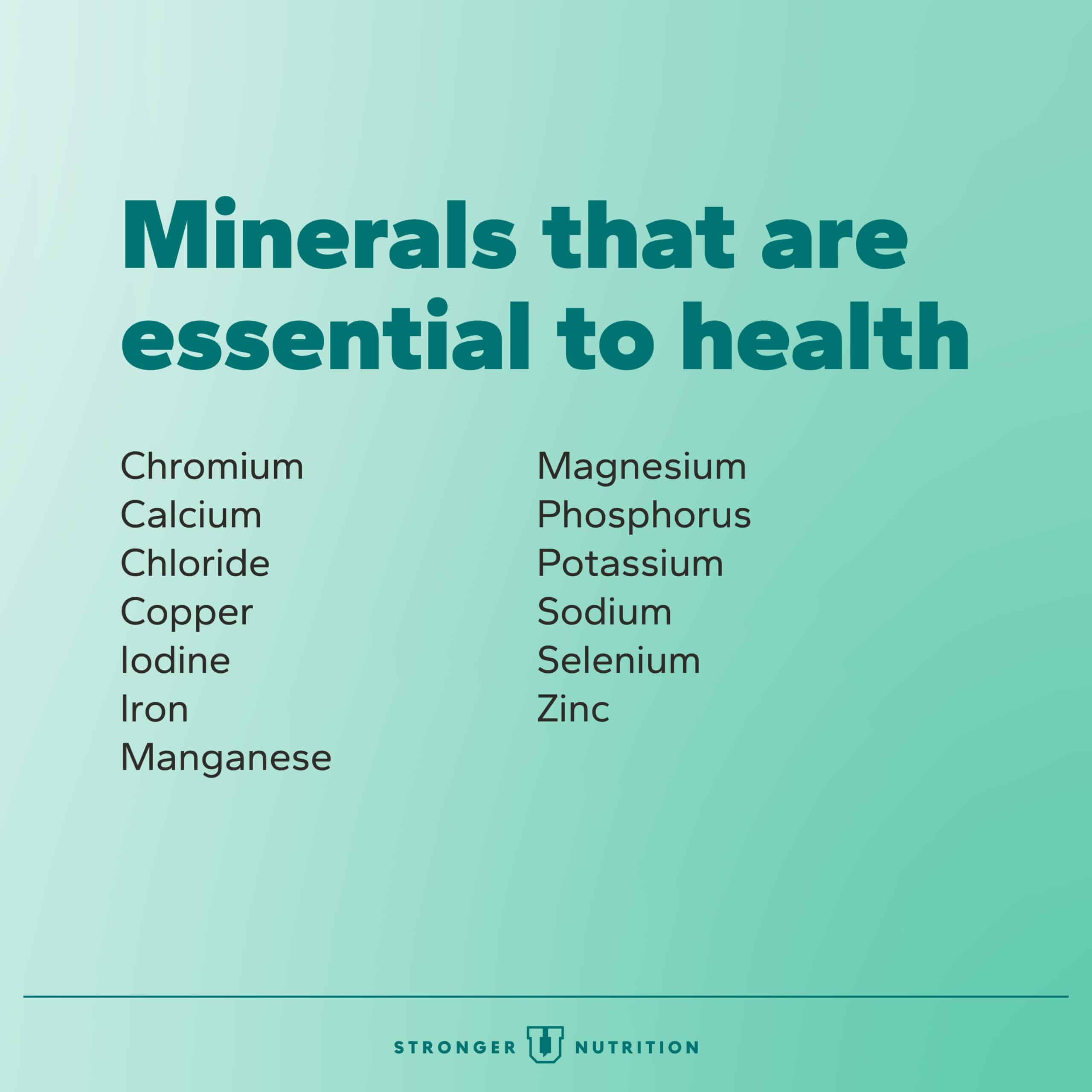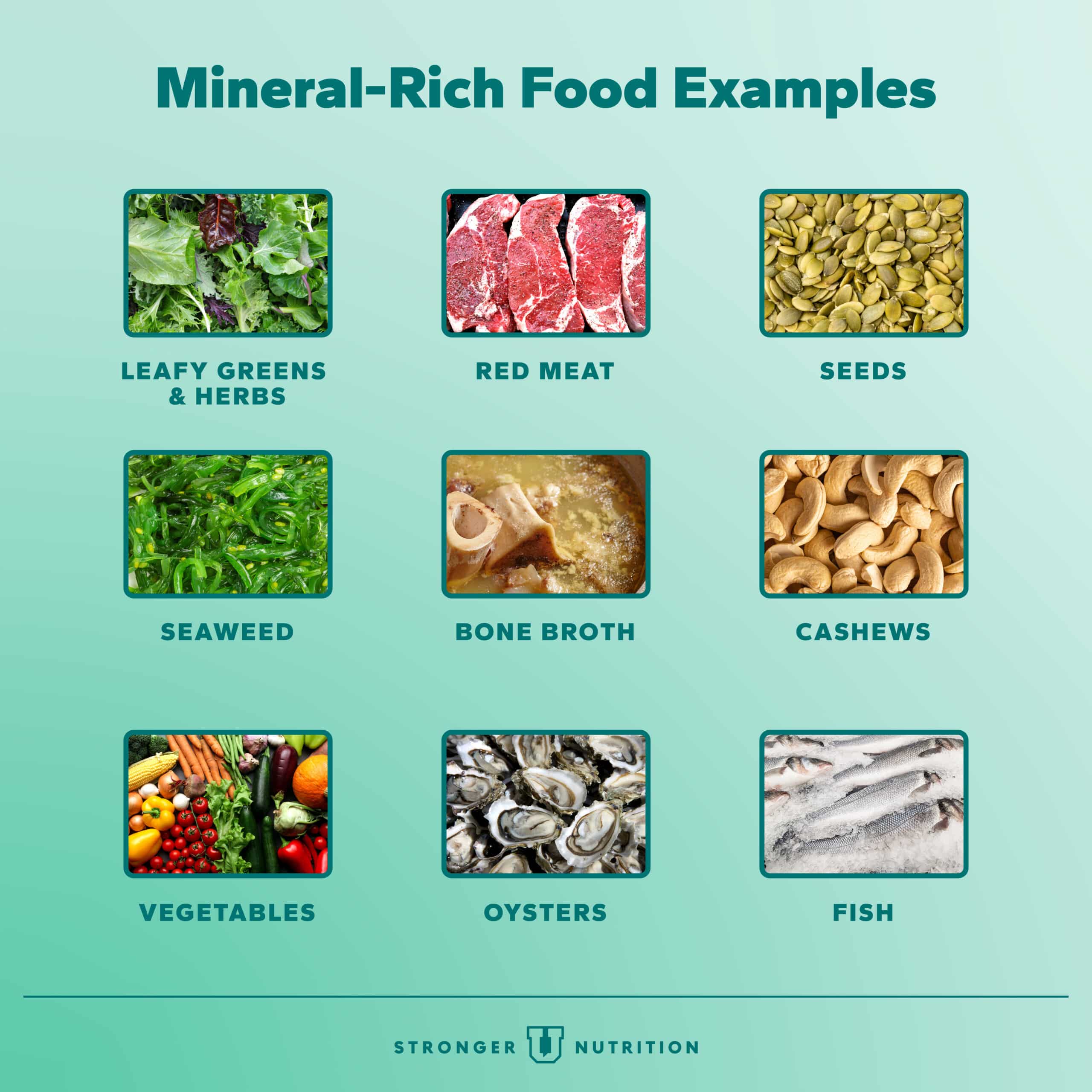The Best Foods for Hormonal Balance in Women
When it comes to women’s health, hormones are crucial in maintaining balance within the female body, affecting everything from reproductive health to mood, weight, and energy levels.
Hormones are chemical messengers that are an essential part of our body’s functions. They communicate between and through endocrine glands to a target organ impacting hundreds of processes dependent on hormones’ domino-like reactions. Some essential hormones for women’s health include cortisol, insulin, estrogen, progesterone, estradiol, testosterone, and thyroid. Certain conditions can be caused by too much or too little of these hormones.
Various factors, including environment, lifestyle (stress, nutrition, exercise), tumors, endocrine gland damage or gene mutations, and autoimmune conditions, can cause hormonal imbalances. When this occurs, women may experience a range of health issues, including irregular menstrual cycles, infertility, weight gain or loss, mood swings, sleep difficulty, appetite changes, and skin changes. More common conditions include estrogen dominance, premenstrual syndrome and premenstrual dysphoric disorder (PMS/PMDD), polycystic ovary syndrome (PCOS), and menopause.
Because hormones impact many bodily functions, hormone testing can measure levels and screen for menstrual disruptions, reproductive disorders, and fertility concerns.
Hormone health is like a symphony: All macronutrients, micronutrients, water, movement, stressors, and body systems need to be working in sync for hormone balance. Having one hormone that is either low or in excess in the body can quickly spiral and lead to other hormone problems and bodily systems operating suboptimal. Bodily functions can also indicate hormone status, for example, digestion and constipation from not drinking enough water can lead to not excreting excess hormones properly.
Hormones can also be impacted by nutrient deficiencies, meaning our body doesn’t have enough of a certain nutrient to carry out necessary functions. Hormone health is complex, with various inputs and outputs signaling our system. Whether someone has a known issue or not, nutrition and lifestyle interventions can be supportive, in addition to more clinical measures, and there are recommended foods for general hormone health in women.
While more research is needed in women’s hormone health and nutrition, there are still takeaways and recommendations that can be tried today.
Recommended Foods for General Hormone Health for Women
It won’t come as a surprise to know that a well-balanced diet prioritizing protein, vegetables, and healthy fats will help support the body and its hormone systems. While it may not be enough in instances that need more medical intervention and an individualized plan, these foods may be a great place to start:
Cruciferous vegetables
Cruciferous vegetables such as broccoli, cauliflower, and Brussels sprouts contain compounds called indoles that help to balance estrogen levels in the body. These vegetables also contain fiber, which can help to regulate digestion and promote the elimination of excess hormones.
Omega-3 fatty acids
Omega-3 fatty acids are essential fatty acids that are found in fatty fish such as salmon, mackerel, and sardines, as well as in flaxseeds, chia seeds, and walnuts. These fatty acids help to reduce inflammation in the body and can help to balance hormones such as estrogen and progesterone.
Fiber
Fiber is important for hormonal balance because it helps to promote the elimination of excess hormones from the body. Foods that are high in fiber include whole grains, fruits, vegetables, and legumes.
Protein
Protein is important for hormonal balance because it helps to stabilize blood sugar levels and can help to reduce cravings for sugar and refined carbohydrates. Good sources of protein include lean meats, fish, eggs, dairy, and plant-based sources such as beans, lentils, and tofu.
Fermented foods
Fermented foods such as kimchi, sauerkraut, and kefir contain beneficial bacteria that can help to support a healthy gut microbiome. A healthy gut microbiome is essential for hormonal balance.
Healthy Dietary Fat & Cholesterol
Healthy dietary fats such as those found in avocados, nuts, and olive oil can help to balance hormones by reducing inflammation in the body and supporting healthy hormone production. Dietary fat and Cholesterol are building blocks of hormones and make up neurotransmitters. Fats help absorb vitamins and minerals and stabilize blood sugar alongside carbohydrate intake (as do fiber and protein).
Cholesterol is only found in animal sources including eggs, higher fat meats, high quality butter, ghee, dairy, and cheese.
Dietary cholesterol historically received a bad reputation for causing high cholesterol, but new research has discussed that dietary cholesterol doesn’t have the impact we once thought. Cholesterol can also change throughout the month due to women’s cycling hormones. One study recommended testing towards the end of the cycle after ovulation to avoid a false high reading.
Additional Lifestyle Recommendations for Hormone Health that you Can Implement Right Now:
- Eat within an hour of waking with a regular schedule of meals every 4-5 hours.
- Consume carbs, fat, and protein at every single meal. (1 & 2 can help balance blood sugar and help lower stress)
- Try to limit stressors and evaluate current necessary stressors. Know the difference between positive stress and harmful stress in your life. For example, eustress is healthy stress that is beneficial and positive to our growth and well-being., while chronic stress refers to experiencing stressors with no end in sight, placing demands that stretch a person’s resources or push past one’s capacity.
- Limit caffeine or intense exercise on an empty stomach.
- This is due to the above, managing stress, as these can also be perceived as stressors and are often overlooked.
Vitamins & Minerals
Bioavailability and absorption matter to get enough of the macronutrients and micronutrients someone needs and avoid deficiency. Water soluble vitamins are easily lost by the body, while fat-soluble vitamins are absorbed with fat, and can be stored in the body.
Vitamins and minerals must be obtained through diet since our bodies either do not make enough, or don’t synthesize them at all. In times of stress, when making more cortisol the body requires B Vitamins and Magnesium, so that is an example of when an increased need for vitamins and minerals is needed.
With such an emphasis on macronutrients, sometimes micronutrients, specifically minerals, can be forgotten about.
Vitamins and minerals are both micronutrients. Minerals are essential to health and hormone production and signaling. Minerals can often be depleted from chronic stress, a standard American diet, not consuming enough mineral rich foods, and declining soil quality.
Use this List to Help Keep the Necessary Vitamins and Minerals in your Diet
*Certain disease states and health concerns will adjust the type, and how much should be consumed. Micronutrients are highly individual and having a personalized plan may be necessary, especially in cases of lab results showing deficiencies.


Foods that Cause Hormonal Imbalances in Females
Certain foods and drinks can contribute to inflammation posing a stressor to the body both directly and indirectly, with responses being highly individualized. For example, drinking excess caffeine or an all-fried meal. It’s important to remember, if we then stress out about overeating something, or consuming something that wasn’t great for us, then we’re causing a two-fold stress response in our body. One from the actual dietary stressor, and then the second from our shame, judgement, and view of the situation.
Some examples of common dietary stressors:
- Caffeine: Coffee and tea contain a lot of antioxidants and do have benefits, but caffeine is still a stimulant, and can cause a stress response itself, and can disrupt sleep which further exacerbates issues.
- Alcohol: This is a toxin to the body, which causes stress directly and increases cortisol. Updated alcohol recommendation now says no amount of alcohol gives benefits.
- Highly processed foods/high sugar foods: Highly processed foods or high sugar foods (this means sugar that isn’t naturally occurring from carbohydrates/sugar from fruit or vegetables for example) can increase inflammation. Keeping our blood sugar balanced and adrenal health well with lower stress can help inflammation levels.
Some examples of highly processed, or high in sugar items are:
- Refined carbs (pastries)
- Fried foods (French fries, deep fried products)
- Sodas and high-sugar beverages
- Processed meats (hot dogs and sausage)
- Margarine, shortening, lard
All foods and drinks are of course fine in moderation, but it’s worth examining what you eat often or consume consistently, and on an everyday basis. For example, monitoring your caffeine intake and minimizing it as much as you can during stress.
Remember, while it’s important to do your best with nutrition, stressing out about eating a less than ideal choice can make stress outcomes even worse. Our bodies are very adaptable, and we don’t need to completely eliminate these foods from our diet! If you’re looking for more support when it comes to eating optimally for your personal needs, consider working with an experienced Stronger U Coach.
FAQ:
How often should I get lab levels checked?
If you’ve never had blood panels done, getting a baseline is very important. For someone who doesn’t have a medical need for more frequent lab work, then annual blood work is a good place to start.
Blood serum lab testing is the gold standard for hormone testing. Outside of blood serum, there are other alternative tests that a provider may order such as urine or saliva tests.
There’s no one test that’s perfect for hormone testing so working with your healthcare provider to decide the best tests and methods is necessary.
What are female hormones that are tested?
The most common female hormones to be evaluated include estrogen, progesterone, testosterone, and thyroid levels. Thyroid labs are recommended depending on symptoms. Individualize your lab needs with a trusted provider.
REFERENCES:
- Davis SR. Testosterone insufficiency in women: Fact or fiction? The Climacteric. 2015;18(5):635-640. doi:10.3109/13697137.2015.1074379
- Levintova M, Levintov A, Hartman AL. Estradiol. Stat Pearls Publishing; 2021. PMID: 32644639
- Harvard Health Publishing. Foods that fight inflammation. https://www.health.harvard.edu/staying-healthy/foods-that-fight-inflammation
- The Endocrine Society. Hormone Guide 5×5 Grid. https://www.endocrine.org/-/media/endocrine/files/patient-engagement/misc_other/hormone_guide_5x5_grid_25x25_english.pdf
- Oliveira R, Marinho AR, et al. Inflammatory foods and chronic inflammation: A narrative review. European Journal of Nutrition. 2022;61:469-482. doi:10.1007/s13679-022-00490-0
- Hernández-Alonso P, Fitó M, et al. Association between dietary inflammatory index and metabolic syndrome in the PREDIMED-Plus study. Clinical Nutrition. 2021;40(3):1468-1476. doi:10.1016/j.clnu.2020.07.005
- El Khoudary H, Matthews KA, et al. The impact of nutrition and lifestyle on cardiovascular risk factors and age at menopause: A cross-sectional analysis. The American Journal of Clinical Nutrition. 2020;111(4):855-865. doi:10.1093/ajcn/nqaa009
- McEwan BS. Stressed or stressed out: what is the difference? Journal of Psychiatry and Neuroscience. 2005;30(5):315-318. PMID: 16109713
- Wolfram M, Bellingrath S, Kudielka BM. The cortisol awakening response (CAR) across the female menstrual cycle. Psychoneuroendocrinology. 2011;36(6):905-912. doi:10.1016/j.psyneuen.2010.12.011
- National Cancer Institute. NCI Dictionary of Cancer Terms. https://www.cancer.gov/publications/dictionaries/cancer-terms
- Centers for Disease Control and Prevention. Female Reproductive System. https://www.cdc.gov/niosh/topics/repro/femalereproductivesystem.html
- Johns Hopkins Medicine. Hormones and the Endocrine System. [https://www.hopkinsmedicine.org/health/conditions-and-diseases/hormones-and-the-endocrine-system
- Bornstein SR, Predisposing factors for adrenal insufficiency. N Engl J Med. 2009;360(23): 2328-2339. doi:10.1056/NEJMra0804635
- Stressed or stressed out: what is the difference? Link McEwen BS. Stressed or stressed out: what is the difference? J Psychiatry Neurosci. 2005;30(5):315-318. PMID: 15961250
- The cortisol awakening response (CAR) across the female menstrual cycle. Link Wolfram M, Bellingrath S, Kudielka BM. The cortisol awakening response (CAR) across the female menstrual cycle. Psychoneuroendocrinology. 2011;36(6):905-912. doi:10.1016/j.psyneuen.2010.12.011








